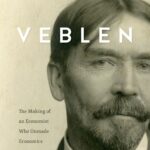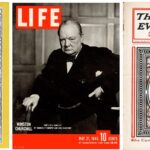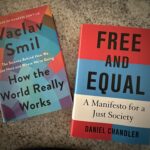What is the difference between a liberal and a conservative? The answers for many are obvious. But for an interesting look into how the two groups think, peak at this article in The Chronicle (http://chronicle.com/free/v50/i30/30b01601.htm). Political philosopher Carl Schmitt is an important thinker in today’s White House. In his “most important” book, “The Concept of the Political,” which is discussed in detail in the article, Schmitt outlined the thinking that separates the right and the left. Interesting stuff. Reading his philosophy is a bit alarming, and eye opening. Oddly enough, the article points out that Schmitt, despite his views became both the apple of the right and the left. Maybe it’s not so hard to believe that his views have been bandied around by both parties, when you discover that his philosophy doesn’t necessarily speak to the merits of either political view. When you read paragraphs like the next one, you see that he is merely describing how each view functions.
“Liberals think of politics as a means; conservatives as an end. Politics, for liberals, stops at the water’s edge; for conservatives, politics never stops. Liberals think of conservatives as potential future allies; conservatives treat liberals as unworthy of recognition. Liberals believe that policies ought to be judged against an independent ideal such as human welfare or the greatest good for the greatest number; conservatives evaluate policies by whether they advance their conservative causes. Liberals instinctively want to dampen passions; conservatives are bent on inflaming them. Liberals think there is a third way between liberalism and conservatism; conservatives believe that anyone who is not a conservative is a liberal. Liberals want to put boundaries on the political by claiming that individuals have certain rights that no government can take away; conservatives argue that in cases of emergency –Â conservatives always find cases of emergency –Â the reach and capacity of the state cannot be challenged.”
It can be like a shot of cold water to the face to have thought processes defined so clearly. The alarm that’s felt, however, can be attributed perhaps to the comments’ honesty (or proximity to it) rather than its gross error. Most of the ideas at least have some familiarity, or they wouldn’t resonate. Is there any truth in these definitions between left and right? Here are a couple of quotes from the Chronicle’s summary that should grab your attention.
“Liberals tend to be optimistic about human nature, whereas “all genuine political theories presuppose man to be evil.” Liberals believe in the possibility of neutral rules that can mediate between conflicting positions, but to Schmitt there is no such neutrality, since any rule –Â even an ostensibly fair one –Â merely represents the victory of one political faction over another.”
“Conservatives are better at fighting wars than liberals because they dispense with such notions as the common good or the interests of all humanity. (“Humanity,” Schmitt wrote in a typically terse formulation that is brilliant if you admire it and chilling if you do not, “cannot wage war because it has no enemy.”)” As someone who leans to the left in my political thinking, I have some difficulty reading Schmitt. Why? I don’t think I can say straight away. I completely agree with the article’s author (Alan Wolfe, director of the Boisi Center for Religion and American Public Life and professor of political science at Boston College) when he says that America’s greatest strength is its liberal tradition.
Schmitt wrote that Thomas Paine and the founders were afraid of absolute powere. He “wrote with some astonishment, that [the Founding Fathers] naïvely tried to check and balance it through the separation of powers. In that, Schmitt was correct. John Locke, not Thomas Hobbes, was the reigning social-contract theorist of the American experience. Our tradition owes more to Montesquieu than to Machiavelli, and even when we relied on the latter, we were influenced more by his thoughts on the Florentine republic than by his apologia for The Prince.”
Let me know what you think.





